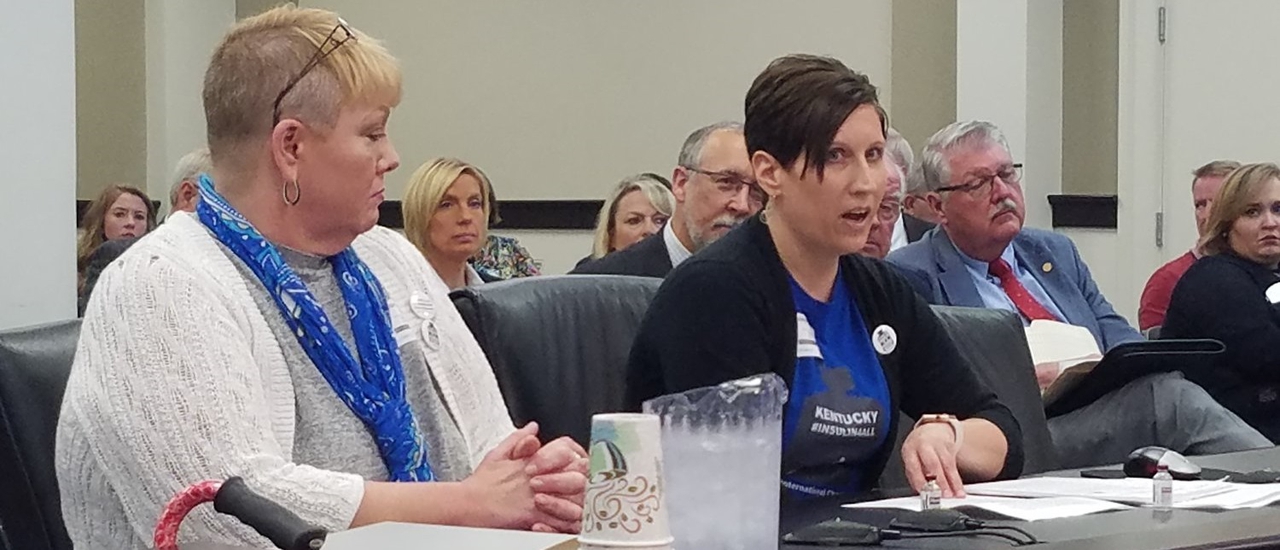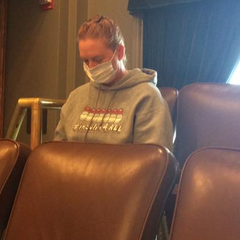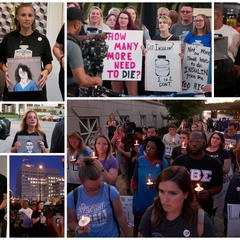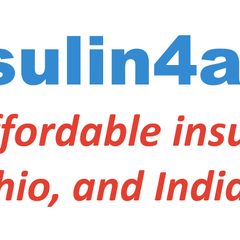
Kentuckians Demand Legislation to Address Insulin Costs, Not Pharma-Funded Talking Points
2 Dec 2019, 9:28 a.m. in #insulin4all USA, News & Statements by Angela Lautner and Sarah Ferguson
“I don’t want to hear about another child or young adult dying because they can’t get their insulin,” Brenda Davis said. “The system needs to be fixed.”
Kayla Davis from Owensboro had type 1 diabetes (T1D) and required a constant supply of insulin to keep her alive. In June of this year, Kayla went to her pharmacy with her insulin prescription, but a requirement for prior authorizations by her Medicaid plan meant she was forced to ration her remaining insulin while awaiting approvals that should not have been required for a life-sustaining treatment in the first place. Kayla died on June 5th. Her refill was approved on June 6th.
Angie Summers of Louisville saw the cost of her insulin go from $35 to over $400/month. She bargained with herself. She could pay for her insulin or pay to keep the lights on. After years of not being able to afford insulin, she lost her right leg below the knee and continues to suffer from other complications. Angie has been using an outdated insulin sold at Walmart for $25 because the newer, better versions are priced out of her reach and often does not allow people with diabetes to best manage their glucose levels in today’s high-pace, high-stress world.
By far, Americans pay more for insulin than any other high-income country. In October of 2018, Angela Lautner purchased Eli Lilly’s Humalog for $22USD in Winnipeg, Canada while the same vial at the same pharmacy store in Florence, KY was over $300.
1 in 4 Americans admit to rationing insulin due to cost. For far too many, the cost of insulin was the cost of their lives. For the rest of us, sacrifices of life savings, money budgeted for rent, mortgage, utility bills, college education, and dream jobs are all too common.
Non-pharma funded advocates for affordable insulin are often faced with talking points funded by the insulin manufacturers themselves. Here are a few:
- Costs must be high to cover the cost of research & development (R&D).
The truth is that 40% of pharmaceutical R&D is funded by governments and private philanthropy. Companies also spend more on marketing, advertising, and lobbying than R&D. Insulin was literally discovered and invented in Canada and given away by its inventors. One study concluded that it may not cost more than $6.16 to make 1 vial of insulin. - Diabetes is a lifestyle disease. People did this to themselves.
This is a particularly enraging for so many advocates because type 1 diabetes is not preventable. The word “diabetes” is not all-inclusive. There are 5 known types of diabetes- Type 1, Type 2, LADA, Gestational Diabetes, and MODY. Advocacy organizations and governments should not focus solely on just one type of diabetes. - Pharmacy Benefit Managers are the real problem.
Analysts at the Pew Charitable Trust report that of the $341 Billion among all the players, pharmaceutical companies came away with the largest piece of the pie at $204.6 Billion. Pharma claims that their net prices are actually lower and blame PBM’s for price increases, but they resist transparency legislation that lends evidence to this. What’s more, no other country on earth has PBM’s, and if they are such a problem, let’s get rid of them. - But there are coupons and assistance programs!
Coupons are something meant to lower the price of your favorite coffee, but coupons from inulin manufacturers with expiration dates should never be the answer to life-sustaining insulin. Too many don’t qualify for assistance programs and coupons aren’t always available by the manufacturer. Not to mention, coupon schemes can end at any moment so patients have no real assurance. The answer is to lower the price so that every person who needs insulin can afford it.
On August 21st, Kentucky #insulin4all advocates provided the Kentucky Interim Banking and Insurance Committee 3 things that the KY legislature must consider and pass in the upcoming 2020 session to pass impactful legislation.
- Pass an insulin price transparency bill similar to CO HB1009-18 that seeks answers across the entire insulin supply chain to explain each entity’s part in the rising price of insulin, starting with the 3 insulin makers who control the US supply of insulin.
- Pass Rep. Danny Bentley’s “Act Relating to Prescription Insulin”, BR105, to cap insulin copays at $100 per month. Kentucky needs to push this further and lower the cap to $50, or even $25.
- Our state must call on insulin manufacturers to establish a fund to reimburse pharmacies for insulin dispensed to those in need, similar to what advocates in Minnesota are asking for in the Alec Smith Emergency Insulin Act. In Kentucky, this must include emergency insulin access to everyone on high deductible health plans, those who are uninsured, those whose insurance has removed their insulin from coverage, and those who are on multi-state insurance plans where the $100 co-pay cap would not be applicable.
Anything short of these 3 things mean that there will still be Kentuckians who suffer and possibly die. Money from the “big 3” insulin makers is influencing established advocacy groups across the United States, including some of the testimony heard at the August 21st committee meeting. When ideas are proposed that specifically remove blame and accountability from Pharma, it may be a key indicator of who is funding that group. This is why T1International and it’s Chapters, such as Kentucky #insulin4all, don’t accept donations from pharmaceutical companies because it is a direct conflict of interest in the fight for lower insulin costs.
We are tired of inaction, tired of excuses, tired of suffering, tired of begging with hundreds of hours of phone calls and paperwork every year. We are tired of Kentuckians dying. Insulin makers can choose to lower the list price, and ultimately the price we pay at the pharmacy, at any time. Help us make insulin affordable in the Commonwealth by sharing your story with your elected officials and joining the Kentucky#insulin4all chapter.
*Image Credit: Tom Latek






![Hard Work Pays Off for #insulin4all Chapters [USA Update]](/media/thumbs/53/f9/53f96969ecb5a08163f2dab166c8caf9.jpg)
